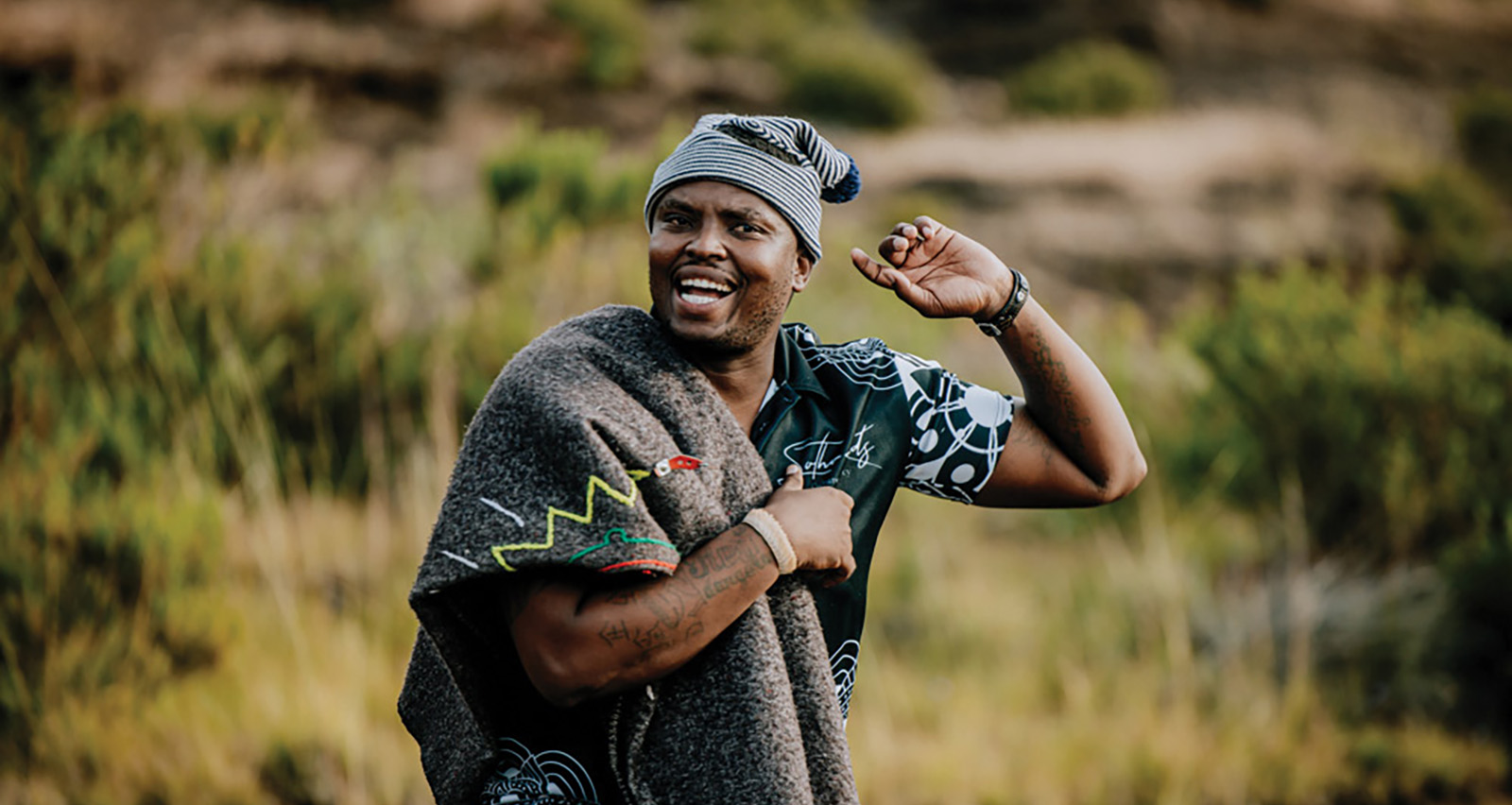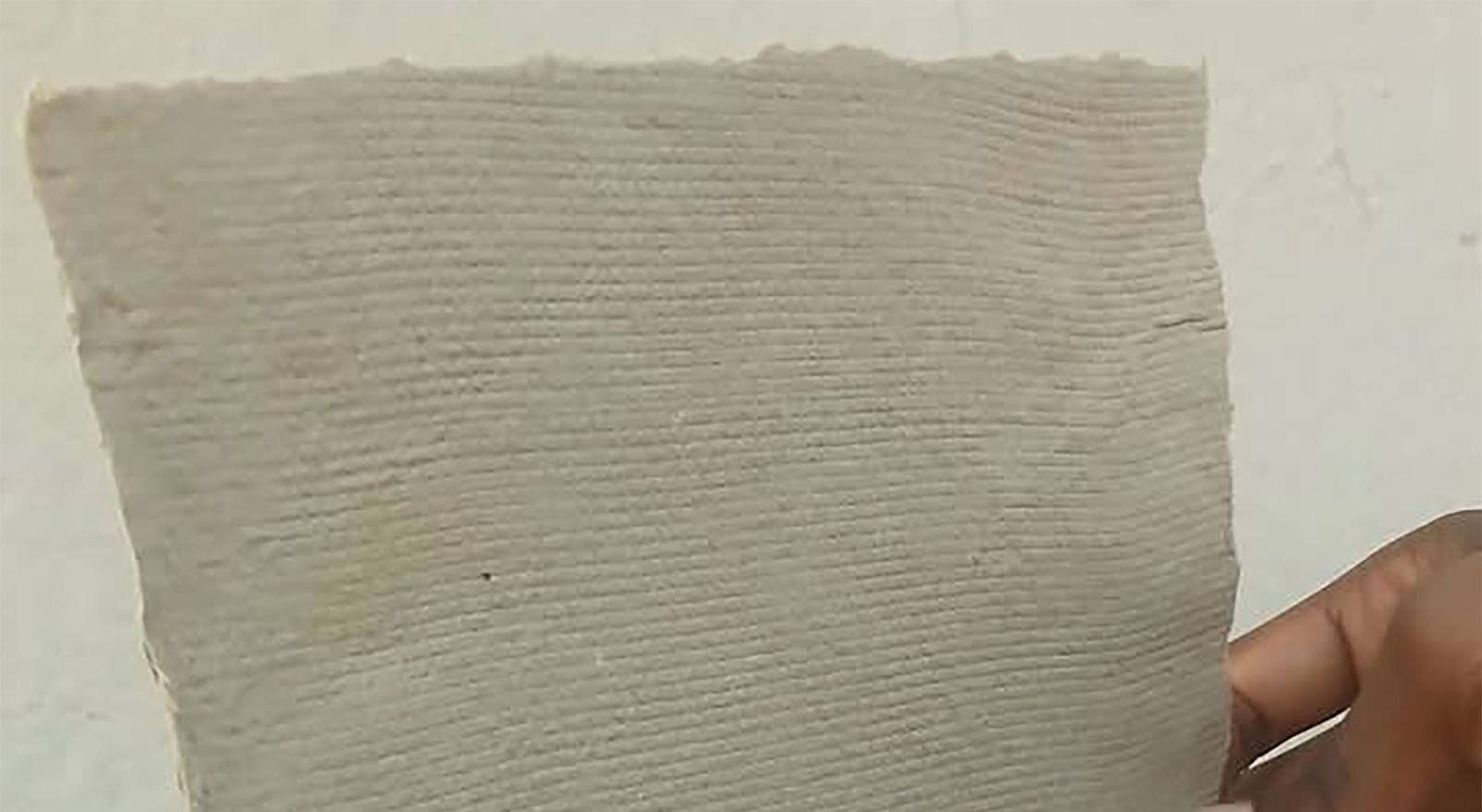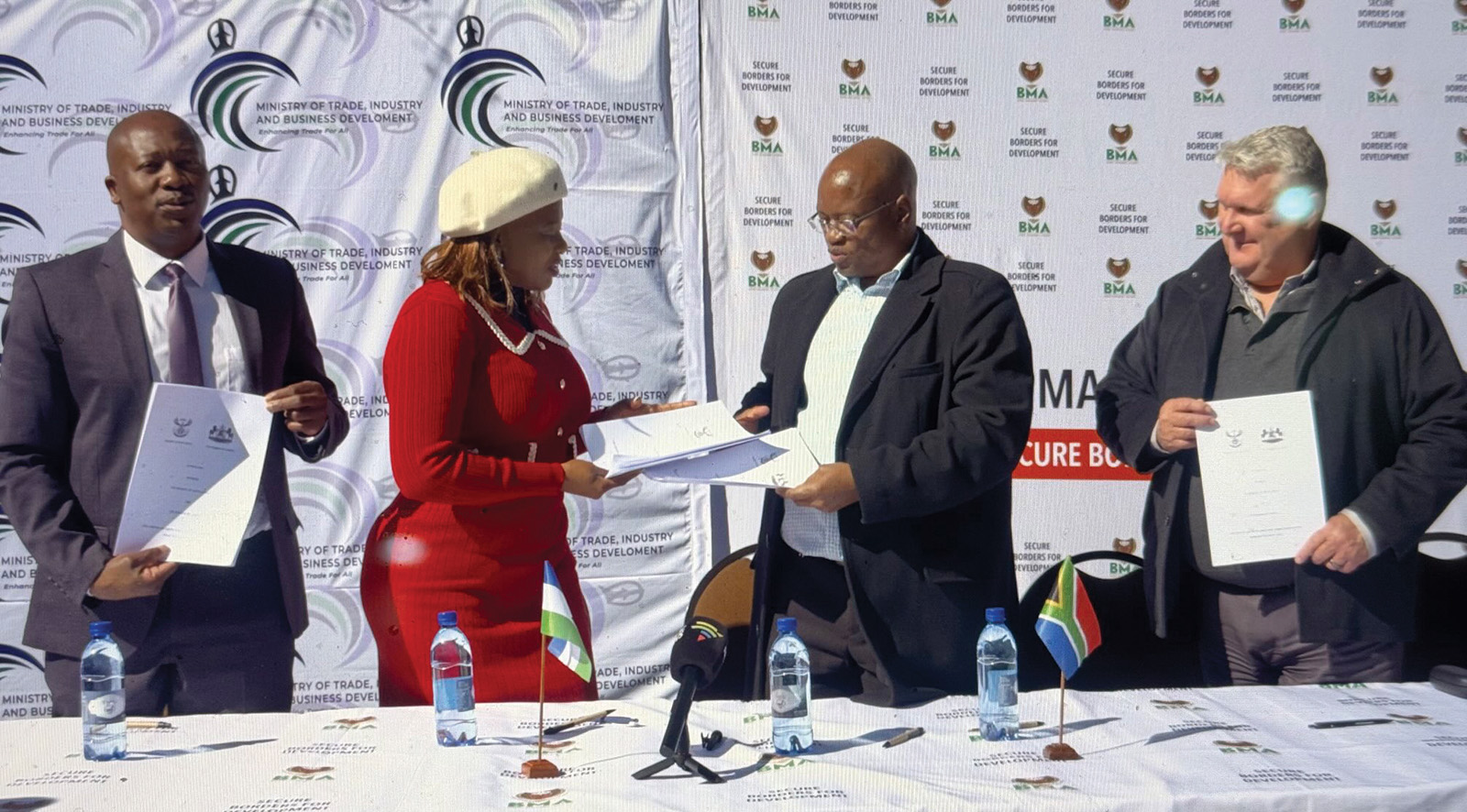Educating girls on menstruation and hygiene

SHARE THIS PAGE!
For Relebohile Mohapi, a 15-year-old girl of Mazenod Ha Paki, her first menstruation five years ago was a mystery she had never understood.
But when a menstrual hygiene and health education programme officer visited her school, she finally got to learn about her body and how to manage her periods with dignity, safely and hygienically.
Like many girls in her community, Relebohile grew up with limited access to sanitary products and with little knowledge about her body. Periods were never discussed openly at home or anywhere, and she often felt ashamed and embarrassed when she was menstruating.
While progress has been made in recent years to break down menstrual taboos and improve access to menstrual products, many girls and women in Lesotho still lack basic knowledge and resources around menstrual health.
This can have serious consequences, from missed school days and low self-esteem, to increased vulnerability to infections and diseases.
Fortunately, there are non-governmental organisations and initiatives that are working to change this.
One such organisation is the Maleah Foundation, which has been running menstrual health education programmes for girls since 2018.
When Maleah Foundation, a young women-led organisation that strives to address issues of Sexual and Reproductive Health (SRH) with the main focus on period poverty began educating girls on menstrual hygiene and health, Relebohile’s world changed.
She learned about her menstrual cycle and how to use menstrual products. She also discovered that menstruation was nothing a girl should be ashamed of, but a natural and healthy part of being a woman.
“I started my menstruation when I was 10 years old. I felt ashamed of myself. I was afraid to go to school because I thought everyone would notice that I was on my periods.
“The lessons I learned and the assistance I got from Maleah changed my life. They made me feel comfortable and helped me learn about my body. I feel like a different person now. I understand it is unhealthy to use a piece of cloth during my menstruation.
“I now feel more confident and prouder of myself and, as a result, I want to help other girls in my village to understand that menstruation is normal and nothing to be ashamed of. It is important that girls like me have access to menstrual products like pads so that they walk boldly during their periods,” she said.
Maleah Foundation coordinator, Moleboheng Mathosi, says the organisation educates and empowers adolescent girls and young women on issues related to SRH, and donates pads to less privileged girls.
The organisation believes ending period poverty does not solely depend on donating pads, but also equipping girls with entrepreneurial skills that will enable them to generate income for themselves and eventually afford to buy basic needs such as soap, pads and underwear which are a necessity for menstrual hygiene and health.
“To ensure that we don’t solely depend on donating pads, we have also developed boot camps which we normally hold twice a year; we invite experts from different professions such as health and finance to motivate and transfer the skills to the girls,” Mathosi noted.
Since its formation, in 2018, the foundation has formed relationships with 10 tertiaries and high schools and one community church in the districts of Mokhotlong, Mohale’s Hoek and Maseru.
Mathosi indicated that through research, education, empowerment and pads donation, the foundation has had a direct impact on over 1000 students countrywide.
“Maleah Foundation, guided by the research conducted in five schools in Mokhotlong, wishes to address the following challenges faced by girls; lack of menstrual products and awareness, break the taboo around menstruation, lack of support as well as lack of self-esteem and self-awareness.
“We believe that access to menstrual products in Lesotho is still a challenge, especially in rural areas where there is also an issue of lack of water which compromises menstrual hygiene.
“The study we conducted in Mokhotlong, has established that girls still use a cloth piece when they are on their periods because they can’t afford sanitary pads. We wish that every girl can be provided with pads for them to use throughout the year. The pads should be provided in schools because sometimes the girls do not have the courage to ask from their teachers,” she said.
She added that menstrual hygiene and health issues do not end with pads, but also involve availability of clean bathrooms with a dustbin to dispose of pads, water and soap to wash hands. Hygiene is very important.
Mathosi explains that the foundation goes beyond just teaching girls about menstrual hygiene; it also seeks to challenge the cultural taboos and stigmas around menstruation.
“We want girls to know that their bodies are not unclean, but are natural and healthy. We also work with boys and men to help them understand and support their female friends and family members,” she indicated.
In Lesotho, where poverty and lack of access to education are widespread, menstrual health education is often overlooked or dismissed as a low priority.
According to the United Nations Population Fund (UNFPA), lack of menstrual health education is a global problem.
In its recent report called ‘Periods in Poverty’, the UNFPA highlighted that one in three girls have either no knowledge or limited knowledge of menstruation before their first period, which can lead to feelings of shame and embarrassment.
The report emphasises that menstrual health education is essential to improving girls’ health and well-being, and ultimately their ability to participate fully in society.
“Menstrual health is a non-negotiable human right in our urgent mission for universal access to sexual and reproductive health.
“Without access to menstrual education, information, products and services, we cannot meet UNFPA’s transformative goals as a contribution to the Sustainable Development Goals (SDGs), to enable millions on a journey towards equal opportunities and empowerment,” reads the report.
Leboela Motoko, a teacher at Tšepe High School in Leribe, says many girls still miss classes when they are on their periods because they lack sanitary towels.
Motoko pointed out that awareness and education on menstruation should not only be given to girls but boys as well since they spend much of their time with girls at school.
“Girls need to be provided with the knowledge and resources they need to manage their periods comfortably and confidently. Boys also need to know what to do when they realise a girl is on her period. They do not have to turn that into a joke, but understand it is nature and girls should be proud of it,” Motoko emphasised.
She added that in addition to the physical and emotional challenges that menstruation can bring, there are also social and cultural barriers that prevent girls from accessing the support they need.
Despite the strides being made by organizations like Maleah Foundation, menstrual taboos remain deeply entrenched in many parts of Lesotho’s society.
“In some communities, menstruation is still seen as taboo or unclean, and girls are often told not to discuss it or even told that they can’t participate in certain activities during their periods. The stigma can lead to feelings of shame, rejection and isolation,” she observed.
“In some rural communities, for example, menstruating girls are still required to sleep separately from the rest of the family members, eat from separate utensils, and even avoid touching livestock lest they make them infertile.
“Addressing menstrual health taboos is not just about providing education or products; it’s about changing mindsets. This requires a multi-pronged approach that engages with communities, traditional leaders, and policymakers to break down these harmful taboos,” said Motoko.
As trusted members of their communities, village health workers like ‘Mamahlapane Mohau are well-positioned to address the cultural and social barriers to menstrual health education among communities.
They are often the first port of call for girls who have questions about menstruation or are experiencing difficulties related to their periods.
“For as far as I have been a village worker for Malaoaneng Health Centre, I have realised that we are seen as approachable and non-threatening members of the community.
“As a result, girls feel comfortable coming to us for help in regards to menstruation issues. Our role goes beyond just educating girls about menstruation; we also connect girls to healthcare services, and even host menstrual health workshops for parents and community members. We have to address the whole issue, not just part of it,’ she says.
“Imagine a world where every person can manage their menstrual health with dignity and ease. To turn this vision into reality, we must join forces to achieve a shared goal. We all need to work together to address menstrual health across person’s life course, not just during their reproductive years,” Mohau pointed out.
Meanwhile, aid organisation World Vision Lesotho says the support of private companies like the Vodacom Foundation in providing menstrual health and hygiene support to over 500 adolescent girls in 2023 underscores the importance of collaboration between the public and private sector in tackling period poverty.
The organisation further noted the remarkable reduction in the school dropout rate from 25 percent to 3.8 percent that signifies the positive impact of the efforts in ensuring that girls have the opportunity to pursue their education without hindrance.
“The passing of a motion by Parliament regarding the development of a legal framework for the provision of free sanitary pads for girls represents a significant policy milestone that will help ensure access to menstrual products for all.
“As we look to the future, World Vision remains steadfast in its commitment to Sustainable Development Goal 6. Through budget allocations, partnership engagements, and policy advocacy initiatives aimed at advancing SDG 6 targets, we will continue to work towards ensuring access to clean water, dignified sanitation, and hygiene facilities for all.
“We commit to advocating for access to sanitary products, providing clean running water, and functional gender and disability-inclusive toilets,” the organisation reports.
Relebohile’s experience is just one small part of a much larger global movement to break down menstrual taboos and promote menstrual health. Each year, on May 28, countries around the world commemorate Menstrual Hygiene Day to raise awareness and advocate for improved menstrual health and hygiene for all. This year’s theme is, ‘Putting an End to Period Poverty.’

CityzeenLs nears 1 million YouTube views
9 days ago


New border plan to advance regional trade
12 days ago
Foul language lands man in court
12 days ago
Youth demand action on unemployment
12 days ago
Ex-ministers threaten to sue govt
12 days ago
CBL launches LERIMA awareness campaign
12 days ago

Youth unemployment declared a state of emergency
13 days ago